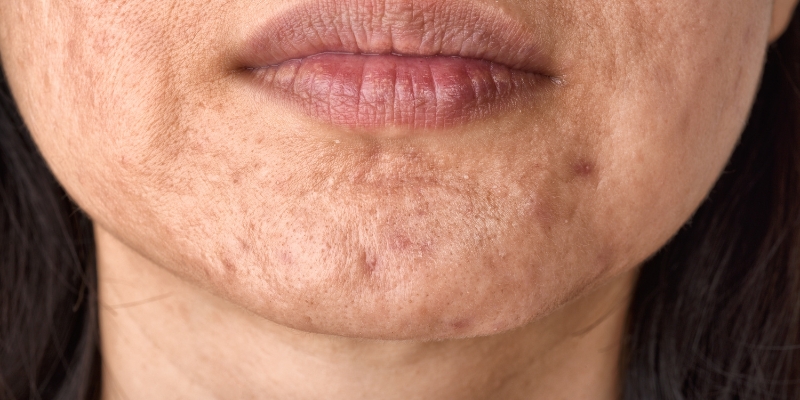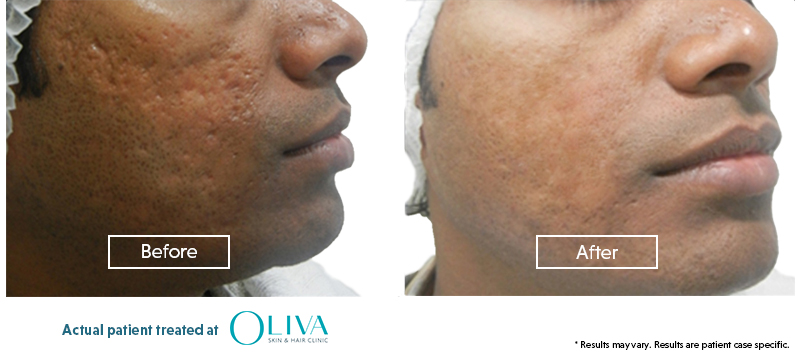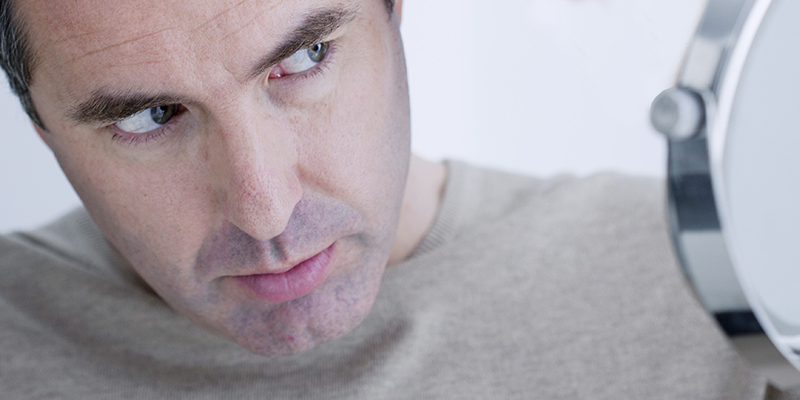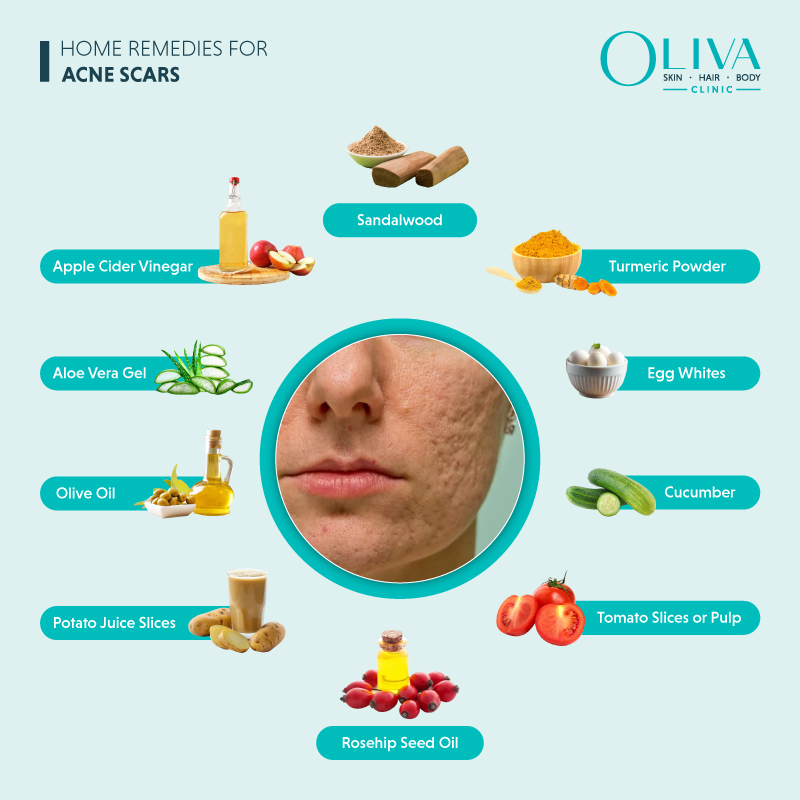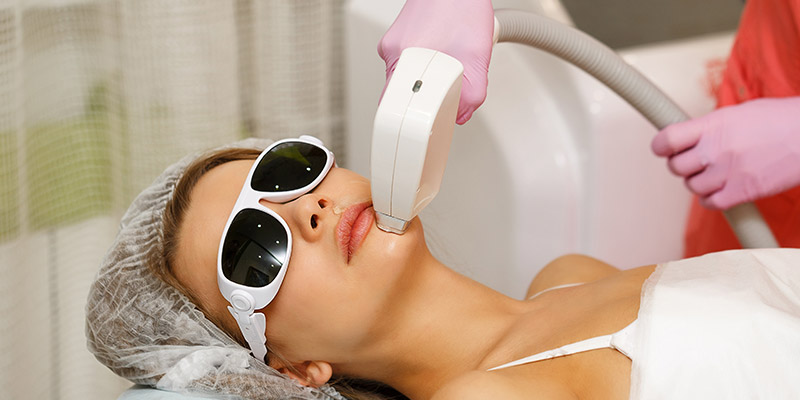How To Get Rid Of Boxcar Scars?
There are different types of acne scars and each of them requires a unique treatment plan. Boxcar scars, which appear as circular or oval depressions on your skin, are the 2nd most common type of atrophic scars after ice pick scars. Atrophic scars are the type where your skin doesn’t go back to its original condition after healing. Thus, it is important that you get the right treatment at the right time to minimise their appearance and if possible, completely eliminate them. Here are the different treatment options available for boxcar scars while learning about their appearance, the reasons for their occurrence, and ways you can likely prevent them.
What are Boxcar Acne Scars?
Boxcar scars are often the aftermath of chickenpox or severe acne, where tissue loss results in the formation of these crater-like scars. They resemble oval depressions with rounded dents, usually the same colour as the skin, but sometimes they may appear red or brown in colour. They are an indication that your skin is suffering from permanent collagen damage and thus require appropriate treatment.
Treatments For Boxcar Scars
Boxcar scars may fade over time, but they are unlikely to completely disappear. In fact, some deep boxcar scars can become more noticeable when left untreated. But with the right treatment at the right time, they will reduce significantly.
Boxcar scar treatment starts with an initial dermatological consultation to examine the scar type and severity and get a customised treatment plan.
Some advanced boxcar scar treatment options include:
- Micro-needling Radio-frequency: This is an advanced treatment that involves micro-needling and radio-frequency technology to reduce a scar’s depth. Using small needles, the dermatologist creates tiny injuries in the scarred area to promote healing and collagen production. It stimulates the growth of new skin cells to show visible improvement in skin texture while minimising the scarring.
Take a look at this video, where our expert talks about the effectiveness of this treatment:

- Chemical Peels: Chemical peels comprise different formulations of plant extracts to mildly exfoliate the skin. The dermatologist will pick the appropriate peel based on the individual’s scar type and severity. The peel eliminates the scarred tissue revealing healthy new skin.
Watch this video to understand how chemical peels work:

- Laser Skin Resurfacing Treatment: Laser treatment also helps minimise the appearance of mild to moderate boxcar scars. The dermatologist uses a specific wavelength laser beam to penetrate the skin at the target site. It stimulates collagen production and increases the skin’s ability to regenerate. Laser treatment when combined with other treatment options such as chemical peels, offers the best results.
You can take a look at this video, where an expert dermatologist explains how laser skin resurfacing works:

Must Read: Acne Scar Treatment
Before & After Results
Boxcar scar treatment at Oliva gives you transformative results. Here are images of Oliva’s client whose skin underwent significant changes after treatment.
When To Visit A Dermatologist?
You should visit a dermatologist if you experience:
- Acne flare-ups; persistent acne flare-ups with cysts or nodules
- Acne or scars worsening
- Redness and inflammation
- Acne spreading to other body areas
You can also visit a dermatologist if you want to identify your skin type, understand what it needs and require help with a healthy skincare routine. This is a great preventive measure to protect your skin health.
Boxcar Scars Prevention Tips
You can follow these essential tips to reduce the occurrence of boxcar scars:
- Wash your face with a gentle cleanser twice daily and follow up with light and oil-free moisturiser.
- Resist the temptation to pick, pop or squeeze breakouts. Open wounds usually end up in scars.
- Use sunscreen daily with SPF 30 or higher to prevent your scars from worsening and from pigmentation.
- Get your acne treated as soon as it appears.
- Include foods rich in Vitamin A to increase cell turnover and clear your pores.
- Include Vitamin C-rich creams and serums in your skincare routine.
- Avoid comedogenic products and makeup that may clog the pores.
Boxcar scars need specific treatments preceding appropriate medical intervention at the right time. The best way is to consult a dermatologist as soon as you experience painful acne flare-ups to avoid scarring in the first place.
For a customised boxcar scar treatment plan by expert dermatologists, Click Here or Call us on 📞82978 82978.
Our certified subject matter experts do extensive research and collate facts from reputed scientific journals and international studies to create informative and engaging articles related to all your dermatology concerns. They strive to help you decipher medical jargon, distinguish fact from fiction and overcome paranoia. Our qualified medical board or expert panel goes a step further to verify these facts based on their rich academic knowledge, vast clinical experience and critical industry insights to ensure you consume only medically accurate content that empowers you to make informed decisions about your hair and skin-care treatments and weight management. Check out our Editorial policy for further details
https://www.ncbi.nlm.nih.gov/pmc/articles/PMC5749614/https://www.ncbi.nlm.nih.gov/pmc/articles/PMC4976400/
https://www.ncbi.nlm.nih.gov/pmc/articles/PMC3937507/
https://www.ncbi.nlm.nih.gov/pmc/articles/PMC4445894/
https://www.ncbi.nlm.nih.gov/pmc/articles/PMC2958495/




